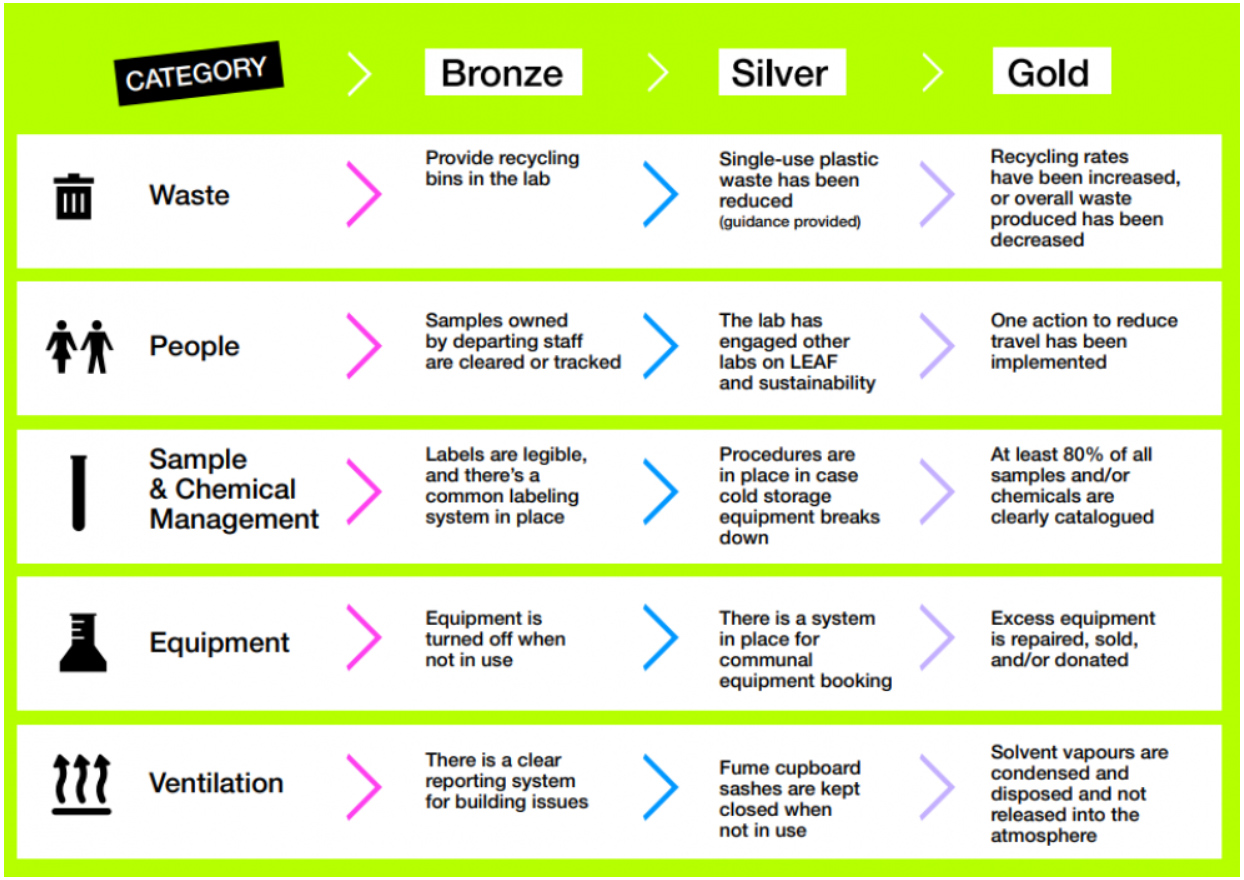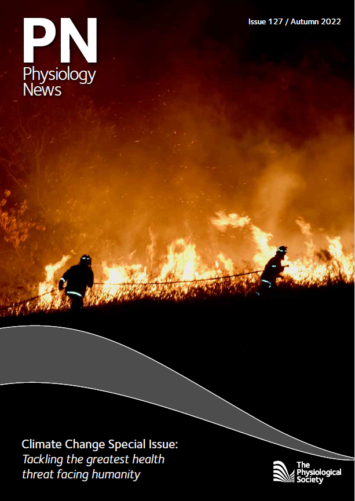
Physiology News Magazine
How sustainable can your laboratory be?
News and Views
How sustainable can your laboratory be?
News and Views
https://doi.org/10.36866/pn.127.13
Martin Farley
Sustainable Lab Manager, University College London (UCL)
If you work in a laboratory, chances are you are aware of the climate crisis. You likely even take actions at home to address this, such as through recycling or turning off the lights when not home. But did you know that your work in the laboratory likely dwarfs your impacts that you have at home? Laboratories require a lot of energy to maintain, and often require an equally significant number of materials, such as chemicals and single-use plastics. Any lab technician, scientist, or student will attest that lab work is resource intensive. Couple this with the fact that demand for such laboratories has increased in the past few decades, as the growth rate of spend in science continually outsizes the rate of global GDP growth (Unesco Science Report, 2021). There is a belief that the outcomes of science outweigh the impacts, but as the resources to conduct impactful science and the impacts of climate change increase, surely a balance must be struck?
If you work in a major academic institution or even some companies now, you may have a net-zero target in place. In the UK our largest funder (UKRI) has set the sector-leading target of 2040 (UK Research and Innovation, 2021). Wherever laboratories are present though, such a target can present a challenge. Can science even be done while achieving net zero? The truth is, we don’t know, yet. But there is a lot we can do.

Energy consumption in laboratories is high for two main reasons: ventilation and equipment. Ventilation requirements can be significantly reduced through efficient design requirements, as well as by engaging staff on agreed hours of occupation. Equipment energy consumption is still a growing challenge, but we need to start with standards in how companies report the energy efficiency of their products. Currently there is little to no validation of reported efficiencies, making it extremely challenging for purchasers to even know if what they’re selecting is efficient or not.
Beyond energy use are the greater environmental impacts associated with the consumption of chemicals, single-use plastics, gases, and materials required for modern science facilities. An estimated 2% of the world’s plastic waste in 2014 originated from laboratories, and many suppliers today cannot produce enough consumables for the growing demand (Urbina et al., 2015). When we look at an institution like UCL, nearly half our energy is consumed by laboratory facilities, but that is just a small portion of our estimated overall carbon emissions (12%) (UCL, 2019a). This is due to the impacts of our supply chain and travel, which make up 87% of our carbon emissions. Here we see that while energy efficiency is important, the greatest impacts we can have are on our supply chains and travel methods. Understanding the impact of specific products is challenging, as most suppliers don’t report on the embodied carbon required to manufacture goods. We must engage our suppliers to produce these figures, so we can set long-term targets and ensure sustainability is considered in purchasing.
More research is needed to fully quantify the impacts of science on the environment, and to enable us to conduct low-carbon science in the future. Time is not on our side though and action is needed immediately in all sectors to address the climate crisis now. To help drive this forward in science, at Sustainable UCL we have developed LEAF, short for the Laboratory Efficiency Assessment Framework (UCL, 2019b). LEAF is a tool that allows lab users to work towards a standard in sustainable lab operations, and contains actions around equipment, ventilation, single-use plastics, and more. Embedded within LEAF are calculators that allow users to estimate the financial savings they achieve, as well as the carbon emissions avoided. Uniquely LEAF blends sustainability with research quality and reproducibility, in recognition that reproducible science is that which represents the best use of the resources required. Piloted for 2 years before being launched in 2021, LEAF is the world’s largest programme of its kind, now in over 1,200 labs enrolled from 72 institutions in 12 different countries and growing fast.
The uptake of LEAF and the reception amongst the scientific community has been truly inspiring, as well as the demand for more support in this area. It has validated the effort we have invested to create the platform and resources alongside LEAF. More work is needed though, as we need programmes like LEAF to become standardised. The entire sector needs to join efforts together to address this, from funders, to suppliers, to students, and all those who work around science.
References
UCL (2019) Change Possible: The Strategy for a Sustainable UCL 2019 – 2024. Available online at https://www.ucl.ac.uk/sustainable/sustainabilityucl/change-possible-strategy-sustainableucl-2019-2024
UCL (2019) Make your lab sustainable with LEAF. Available online at https://www.ucl.ac.uk/sustainable/make-your-lab-sustainable-leaf
UK Research and Innovation (2021). Environmental sustainability. Available online at https://www.ukri.org/about-us/policies-standards-and data/environmentalsustainability/
Unesco Science Report (2021) The race against time for smarter development. Available online https://www.unesco.org/reports/science/2021/en
Urbina MA et al (2015) Labs should cut plastic waste too. Nature 528, 479. https://doi.org/10.1038/528479c
